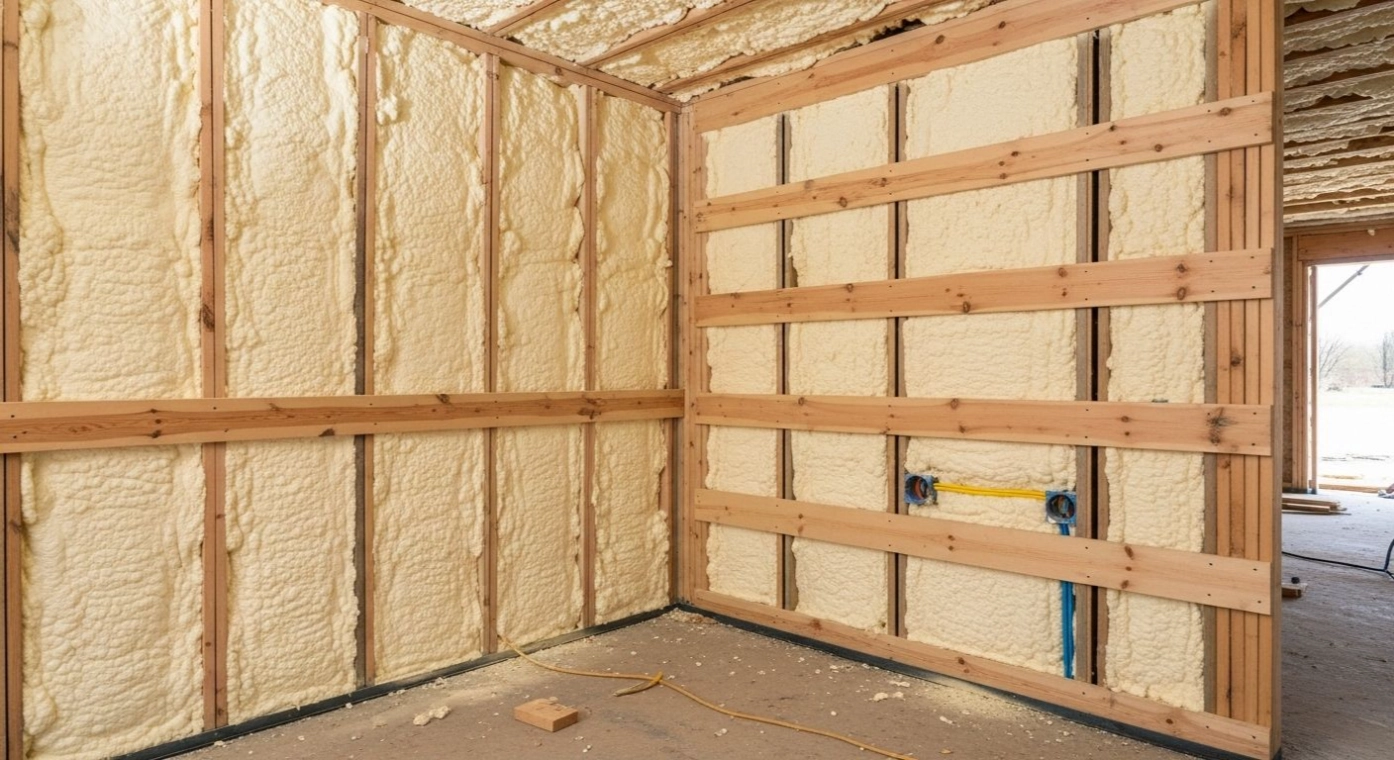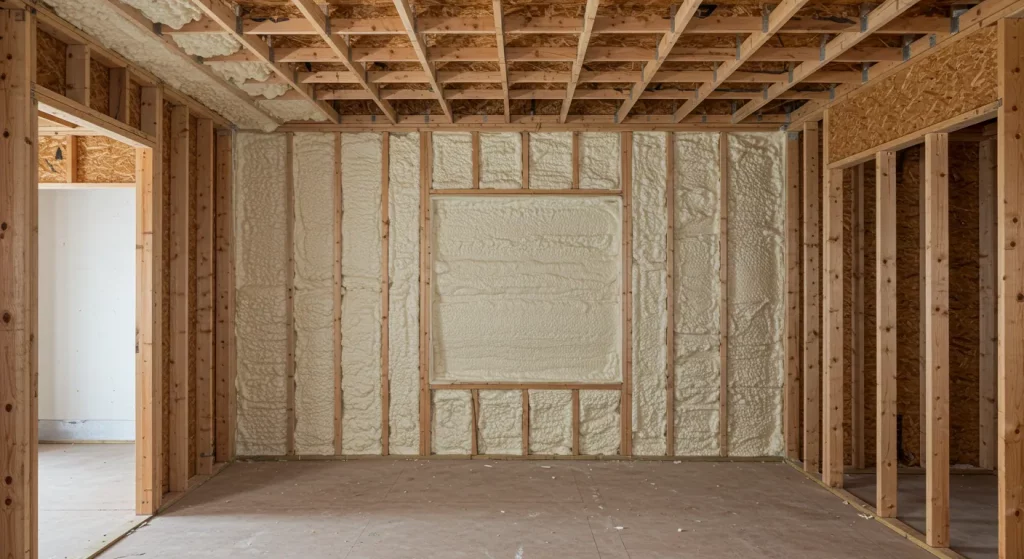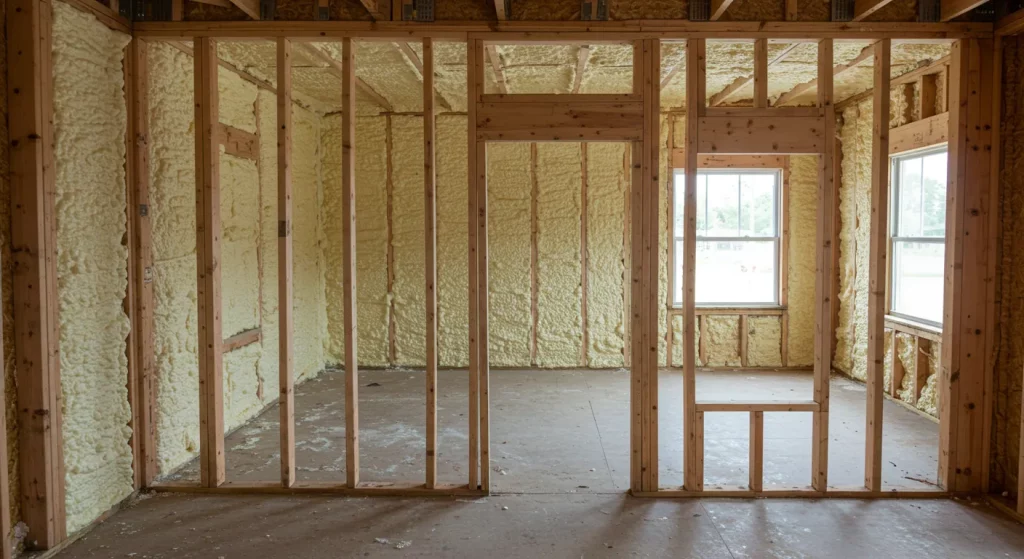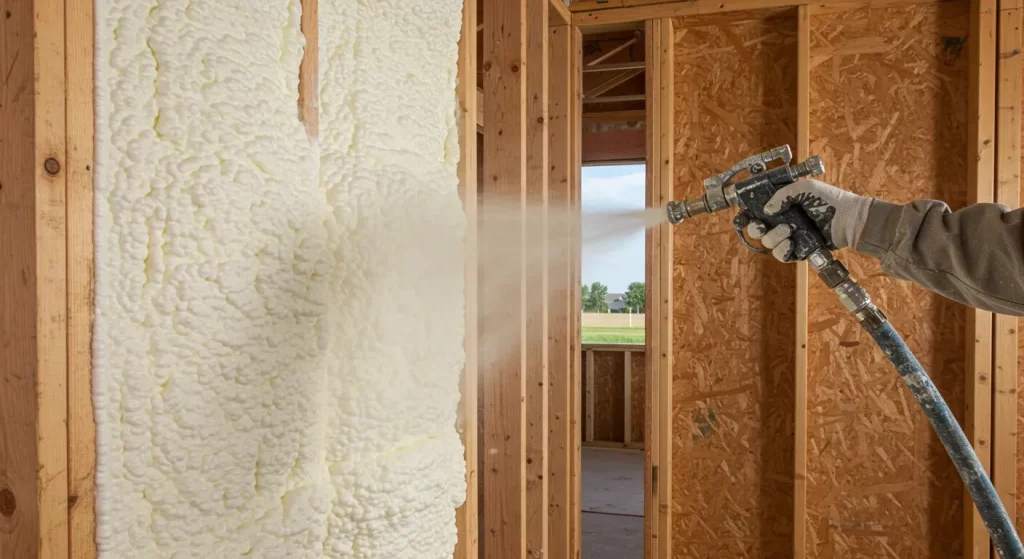Open-cell and closed-cell spray foam insulation serve different purposes, and the better option depends on Raleigh’s climate, the location of the insulation, and long-term performance needs. In most Raleigh homes, open-cell foam works well for interior walls and attics because of its flexibility and sound absorption, while closed-cell foam performs better in basements, crawl spaces, and exterior walls due to its higher moisture resistance and insulation value.
The key decision lies in balancing moisture protection, energy efficiency, and installation goals. Raleigh experiences humid summers and cool winters, making both insulation types useful when applied in the right places.
How open and closed cell insulation compare in Raleigh homes
| Feature | Open-Cell Spray Foam | Closed-Cell Spray Foam |
|---|---|---|
| R-Value per Inch | ~3.5 to 3.7 | ~6.0 to 7.0 |
| Moisture Resistance | Low – can absorb water | High – resists moisture and vapor |
| Density | 0.5 lb/ft³ | 2 lb/ft³ |
| Sound Absorption | Excellent | Limited |
| Flexibility | Expands more, good for tight areas | Rigid, structural support |
| Best Applications | Attics, interior walls, sound control | Basements, crawl spaces, exterior walls, roofing |
| Durability | Softer, less impact resistant | Stronger, adds wall strength |
| Cost per Square Foot | Lower | Higher |
Technical performance specifications
| Specification | Open-Cell Foam | Closed-Cell Foam |
|---|---|---|
| Air Seal Effectiveness | High | High |
| Vapor Barrier | No | Yes |
| Perm Rating | 10+ perms (breathable) | <1 perm (blocks vapor) |
| Structural Contribution | Minimal | Adds strength to walls/roofs |
Factors that matter most in Raleigh homes
Raleigh’s humid climate means moisture control plays a critical role in insulation choice. Closed-cell spray foam is often recommended in basements and crawl spaces, where humidity and ground moisture can cause long-term damage. Open-cell spray foam, with its breathable structure, is better suited for attics where ventilation helps regulate moisture.
Energy Star data shows homes in the Southeast can reduce heating and cooling costs by up to 20% with proper insulation upgrades (U.S. Department of Energy). Combining both foam types in strategic areas often provides the most effective balance.
Bonus Tip: For older Raleigh homes with existing air leaks, open-cell foam is a practical solution for filling irregular cavities.
Things to consider before choosing insulation type
- Location of installation: Moisture-prone spaces benefit from closed-cell foam, while open areas and interior walls are suitable for open-cell foam.
- Building age and structure: Older homes may gain flexibility from open-cell foam, while newer builds can benefit from the strength of closed-cell foam.
- Noise concerns: Open-cell foam is better for reducing sound between rooms.
- Future renovations: Open-cell foam can be easier to remove or modify if changes are needed.
- Energy performance goals: Closed-cell offers higher insulation value in less space, useful where wall depth is limited.
Bonus Tip: Always consider a professional moisture assessment before applying insulation in basements or crawl spaces.
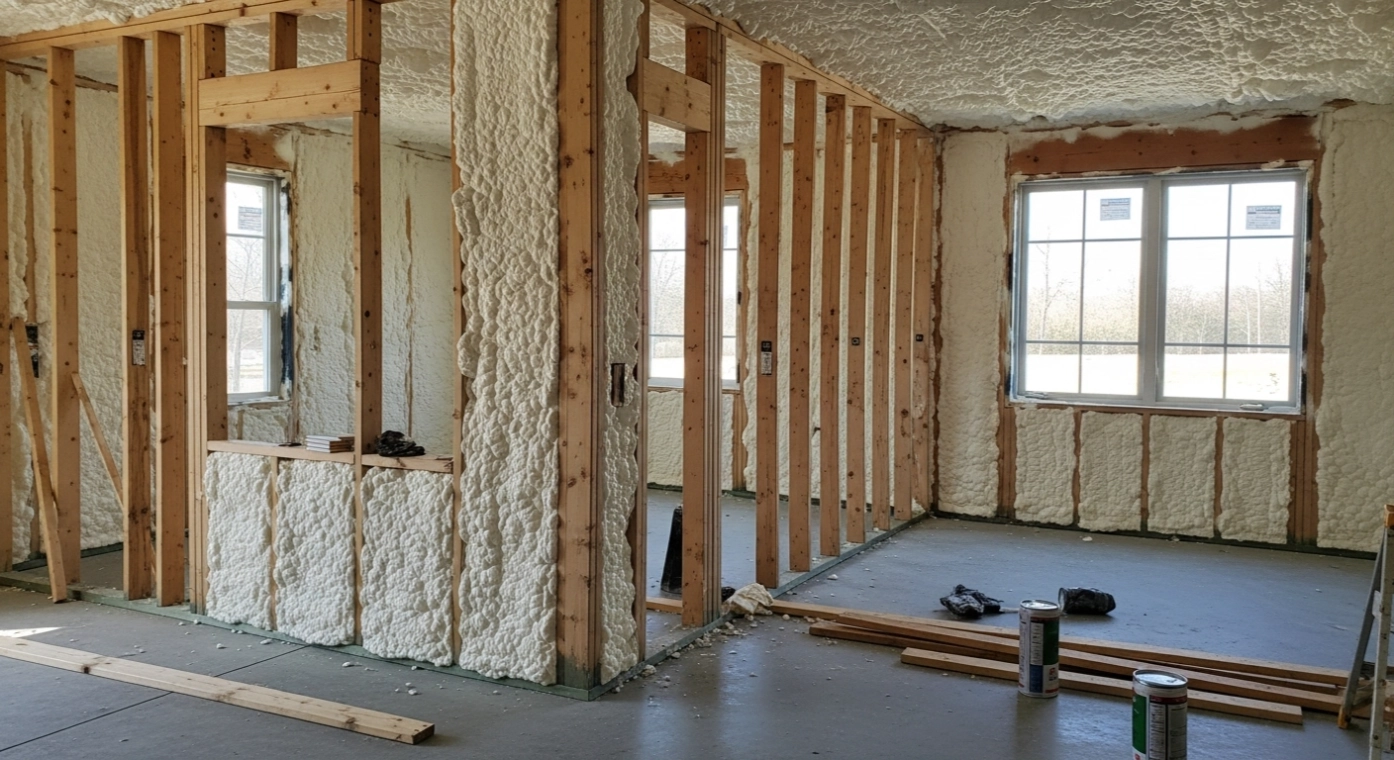
Services offered for Raleigh homes
- Closed-cell spray foam insulation: Provides strong moisture resistance and structural reinforcement in basements, crawl spaces, and roofing.
- Open-cell spray foam insulation: Effective for attics and walls with superior sound absorption.
- Roof insulation: Extends roof life and improves thermal performance against Raleigh’s summer heat.
- Basement insulation: Protects against ground moisture and supports energy efficiency year-round.
Common homeowner questions before installation
Can both foam types be used in the same home?
Yes, many Raleigh homes use open-cell in attics and closed-cell in basements and exterior walls.
Will open-cell foam lead to mold problems?
Not if the space has proper ventilation and air circulation.
Is closed-cell foam too rigid for older homes?
No, but installation should be evaluated by an experienced contractor.
How long does spray foam last once installed?
Both types can last several decades when properly applied.
Summary of key points
Open-cell foam suits attics and interior walls in Raleigh homes, offering noise reduction and flexibility. Closed-cell foam works best in basements, crawl spaces, and exterior areas, delivering superior moisture resistance and insulation performance. Using each type where it performs best leads to stronger energy efficiency and long-term durability.
Contact Raleigh Excel Spray Foam Insulation
For expert installation in Raleigh homes, contact Raleigh Excel Spray Foam Insulation at [email protected] or call (919) 301-9435. Professional assessment ensures the right insulation choice for long-term comfort and performance.
FAQS
How do I maintain spray foam insulation?
Regularly check for water intrusion in basements and roofing to maintain performance.
Can spray foam insulation be repaired if damaged?
Yes, damaged sections can be cut out and re-applied without replacing the entire surface.
Will spray foam affect indoor air quality long term?
After curing, spray foam is inert and does not emit harmful gases.
Can insulation improve resale value?
Energy-efficient insulation can increase property appeal, especially in regions with hot summers and cool winters.
Does spray foam reduce pest issues?
Closed-cell foam can help deter insects and rodents by blocking entry points.




